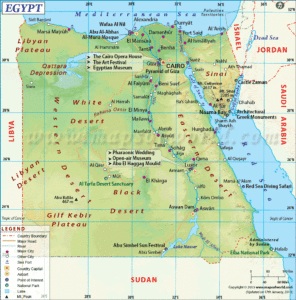
By Sunya Hassan || Layout Assistant
The death toll has climbed to 305 in the northern Sinai village of Bir al-Abed after a bomb and gun attack took place in a Sufi mosque there on November 24th.
According to Egypt’s chief prosecutor, Nabil Sadeq, the attack was carried out by around 30 militants who arrived at the mosque in five all-terrain vehicles. They detonated a bomb in the crowded mosque, and proceeded to spray worshippers with heavy gunfire as they tried to flee. Several eyewitnesses stated that the terrorists stationed themselves at the mosque’s three exits and deliberately attacked people who tried to escape the building. They also torched seven cars that were parked outside the mosque and shot at passing vehicles. Out of the 305 fatalities, 27 were children, and 128 more were wounded, making this one of the deadliest attacks in Egypt’s modern history.
Though no one has officially claimed responsibility for the attack, the Egyptian government has placed the blame on ISIS, citing eyewitnesses who saw some of the militants wielding ISIS flags. The assault also bears the tactical hallmarks of a strike by ISIS, which maintains a foothold in the north of the Sinai Peninsula. ISIS inspires local Islamic extremist groups to take action despite the efforts of Egypt’s security forces. Egypt’s president, Abdel Fattah el-Sisi, has vowed to respond to the massacre with “brute force.” Since then, the nation’s military has carried out several airstrikes on bases that are purportedly used by ISIS militants in the North Sinai region. As military spokesmen, Tamer Rifai stated, “The Egyptian Air Force pursued the terrorist elements, discovered and destroyed a number of vehicles that carried out the brutal terrorist killings, and killed all terrorists inside those vehicles.”
Many question why this mosque was targeted specifically, as attacks on mosques are an uncommon occurrence in Egypt. To answer said question, it is important to understand how Sunni extremists view Sufism. Sufism is a strand of Islam that shuns materialism and puts an emphasis on searching for God within oneself. Its followers promote tolerance and pluralism, and are also to be credited for many of Islam’s most well-known literature. The majority of Sufi believers are Sunni. However, theirs is an interpretation of Islam that radically differs from what Sunni extremists believe. They view Sufism as heretical, and often lump them in with other “nonbelievers.” Lately, extremists have been more willing to target Sufi mosques. Previously, organizations like al-Qaeda shied away from conducting attacks on Sufi believers, though they had been willing to destroy Sufi sites. But the Islamic State does not take after al-Qaeda in that manner. One of the Islamic State’s top commanders in Sinai expressed his deep rooted hatred for Sufism. He specifically labeled Rawda––the district in which the massacre occurred––as one of three areas dominated by Sufis that he hoped to someday “eradicate.” If ISIS was responsible for the attack, they may have viewed it as revenge against the Sawarkah tribe, to which most people in the district belong. Members had been cooperating with the Egyptian government in its campaign against ISIS groups in the Sinai province.
The Egyptian government had declared three days of national mourning beginning on November 25th in honor of the attack. President Sisi also ordered his armed forces to build a memorial to those who were killed at the mosque.
First-year Sunya Hassan is a layout assistant. Her email is shassan@fandm.edu.